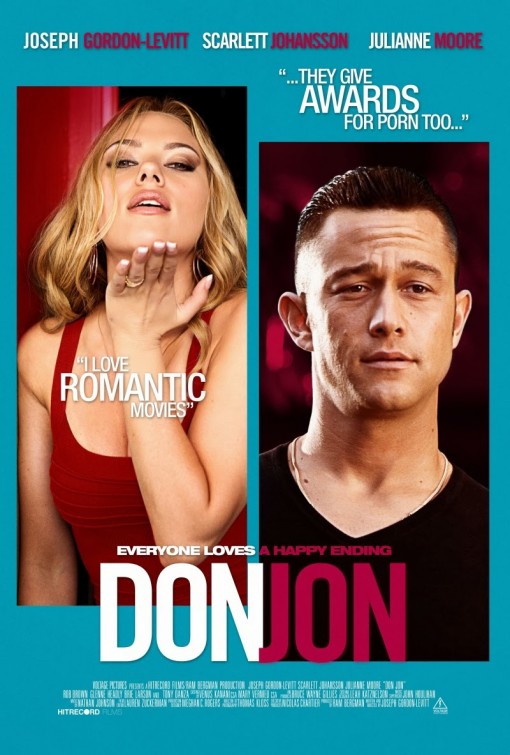
A very belated film review of ‘Don Jon’
By JP, Contributor
Don Jon (2013) is certainly not the best-executed romantic comedy of the last few years, but its finest moments derive from its treatment of the subject of pornography and porn addiction, facets of modern day life—particularly affecting men—that are not honestly discussed often enough in film or television.
The film centres on Joseph Gordon-Levitt’s character, Jon, whom his friends refer to as the ‘Don’ because of his ability to seduce attractive girls when he goes out with them. Despite his apparent success with women, Jon finds himself perennially unsatisfied in comparison to the pleasures he gets from watching pornography.
He ruins his relationship with Scarlett Johannsen’s character, Barbara, a woman more beautiful than any he has seduced before, because of his inability to stop watching pornography. Ironically, the reason for this is Jon’s techno-backwardness and his inability to realize that his porn viewing is logged in his browser history. Jon’s porn addiction then takes over his life, and he becomes isolated, dependant, and unable to form lasting intimate romantic relationships because of pornography.
The characters in the film are one of its stronger aspects. Jon, Barbara, and Jon’s friends and family all form quite a colourful cast that fleshes out the romance and the comedy in the film. Jon’s sister, who spends the entire film texting and looking bored, only speaks one line near the end of the film. It turns out to be a poignant reminder to her brother that the girlfriend he thought he was in love with was shallow and controlling, combining both heart and comic effect into one line of dialogue.
Most of the film’s best moments lie in the first half with the film’s colourful main characters. The second half of the movie focuses on Jon trying to put his life back together with the help of Julianne Moore’s character, Esther, who teaches Jon to be more caring in his relationships. The film tries to show how porn addiction can be healed, but the cinematic aspects are not handled with the same comic deft as the first half of the film, and perhaps positive changes are not as funny to watch as negative ones.
Another mishandled part of the film is the connection it tries to make between the unrealistic expectations of sex that porn sets for men and the unrealistic expectations of courtship and love that romantic movies set for women.
In brief, the film represents a unique and earnest effort at using pornography and porn addiction as the driving plot elements of a romantic comedy, with some strong moments, though plenty of mediocre ones.


